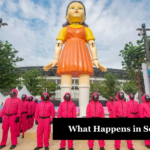The recent surge in mpox cases across Africa has prompted the head of the Africa Centres for Disease Control and Prevention (CDC), Dr. Jean Kaseya, to consider declaring a continental public health emergency. Dr. Kaseya, 52, a seasoned public health expert with over two decades of experience, has been at the helm of Africa CDC, working tirelessly to combat various health challenges across the continent. Known for his commitment to public health, Dr. Kaseya is married with two children and has a net worth estimated at $1 million. His recent announcement highlights the urgent need for a coordinated response to prevent the mpox outbreak from escalating into another pandemic.
Rapid Spread
The mpox virus, which first emerged in humans in 1970 in the Democratic Republic of Congo (DRC), has seen a significant resurgence this year. Over the past week alone, 887 new confirmed and suspected cases have been reported across the continent, bringing the total for the year to 15,132. This represents a staggering 160% increase compared to the same period last year. The DRC remains the epicenter of the outbreak, accounting for over 90% of the reported cases. Tragically, 461 people have lost their lives to the virus in 2024 alone.
The rapid spread of the virus has raised alarms across the continent, with 16 countries now reporting cases. For the first time, Burundi, Kenya, Rwanda, and Uganda have reported incidents of mpox, underscoring the need for a collective and collaborative approach to curb the spread of the disease. Dr. Kaseya emphasized the importance of mobilizing resources and providing technical assistance to affected countries, stressing that the situation demands immediate attention to prevent a full-blown pandemic.
Vaccine Shortage
One of the most pressing challenges in combating the mpox outbreak in Africa is the severe shortage of vaccines. While countries in the West have managed to control the spread of the virus through widespread vaccination, Africa faces a stark contrast. Dr. Kaseya highlighted that there are currently only 200,000 doses of the mpox vaccine available on the continent, a far cry from the estimated demand of at least 10 million doses. This shortage poses a significant hurdle in the efforts to control the outbreak.
Africa CDC is actively working with international partners to secure more vaccines, recognizing that vaccination is a critical tool in preventing the spread of the virus. The lack of vaccines not only hampers immediate response efforts but also exacerbates the risk of the virus spreading to new regions, potentially leading to more severe health consequences.
International Response
The mpox outbreak in Africa has garnered global attention, with the World Health Organization (WHO) closely monitoring the situation. WHO Director-General Tedros Adhanom Ghebreyesus recently announced plans to convene an emergency committee to determine whether the spread of mpox on the continent should be declared a global emergency. This move highlights the seriousness of the outbreak and the potential global implications if the virus is not contained.
Dr. Kaseya’s decision to begin “active engagement” with African Union member states is a critical step in ensuring a unified and effective response to the outbreak. The process of declaring a continental public health emergency involves extensive technical and strategic consultation between Africa CDC and affected member states. This will culminate in an extraordinary summit for heads of state, where a comprehensive response strategy will be discussed.
Need for Collaboration
As the mpox outbreak continues to escalate, the importance of collaboration between African nations and international partners cannot be overstated. Dr. Kaseya has called for a collective approach to curbing the spread of the virus, recognizing that no single country can effectively combat the outbreak alone. The African Union (AU) has already taken steps to support these efforts, with an emergency approval of $10.4 million allocated to Africa CDC to combat the outbreak.
This funding will be crucial in supporting the mobilization of resources, providing technical assistance, and securing much-needed vaccines. However, the road ahead remains challenging, with the need for ongoing vigilance, cooperation, and support from the global community.
Conclusion
The growing mpox outbreak in Africa presents a significant public health challenge that requires immediate and coordinated action. Dr. Jean Kaseya, with his vast experience and dedication to public health, is leading the charge in mobilizing resources and engaging with African Union member states to prevent the outbreak from becoming another pandemic. The severe vaccine shortage on the continent underscores the need for international collaboration and support to ensure that Africa can effectively combat the spread of the virus.
As the world watches, the response to the mpox outbreak in Africa will serve as a critical test of global solidarity and the ability to address emerging health threats in a timely and effective manner. With the support of the African Union, international partners, and the global health community, there is hope that the outbreak can be contained and lives can be saved.










